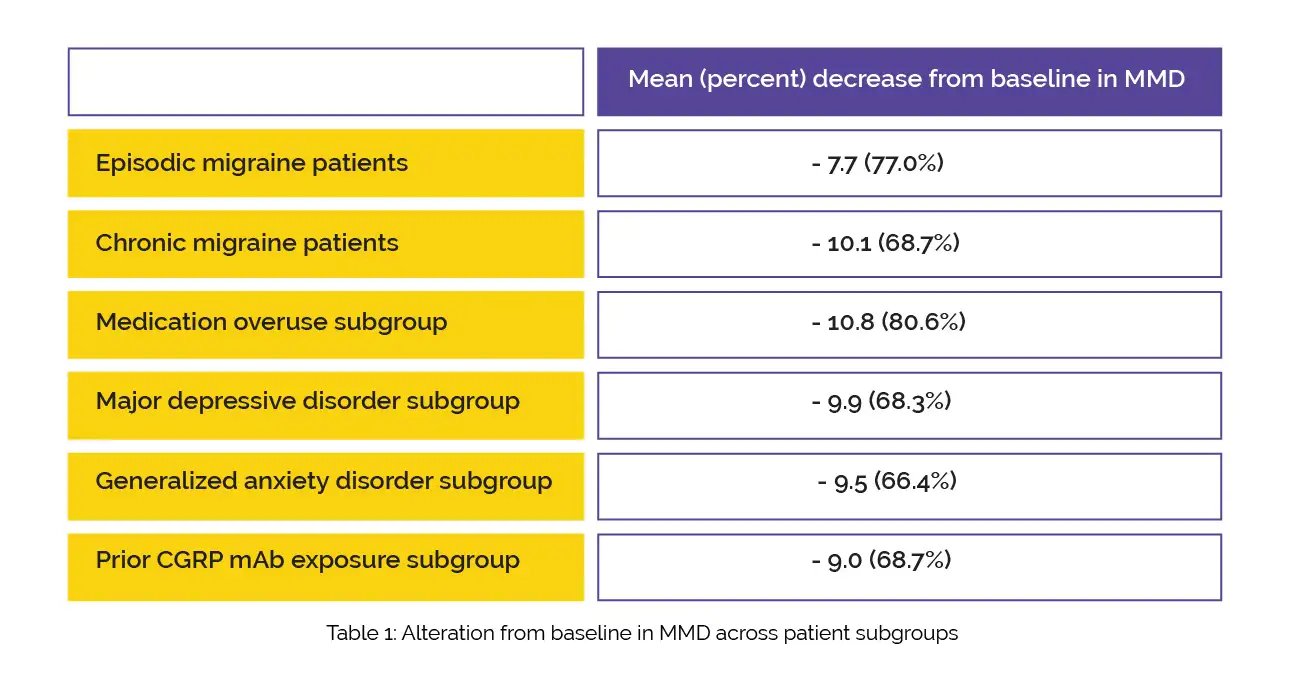Categories
Change Password!
Reset Password!


This retrospective, panel-based online chart review aimed to evaluate the effectiveness of fremanezumab across various subsets of adult patients with difficult-to-treat migraine, chronic migraine, or episodic migraine in a real-world clinical setup.
Use of fremanezumab is effective to treat migraine regardless of type of migraine or the presence of factors that contribute to difficult-to-treat migraine.
This retrospective, panel-based online chart review aimed to evaluate the effectiveness of fremanezumab across various subsets of adult patients with difficult-to-treat migraine, chronic migraine, or episodic migraine in a real-world clinical setup.
Patients who were diagnosed with chronic migraine or episodic migraine; age ≥ eighteen years during first fremanezumab commencement; ≥ 2 estimations of monthly migraine days; ≥ 1 follow-up visit since first commencement; and ≥ 1 dose of fremanezumab were included. During the follow-up period, alterations in monthly headache days (MHD) and monthly migraine days (MMD) were evaluated.
Prior exposure to a different calcitonin gene-related peptide pathway-targeted monoclonal antibody (CGRP mAb), generalized anxiety disorder, major depressive disorder, and diagnosis of medication overuse were assessed in subsets of patients by type of migraine (chronic migraine/episodic migraine) and in subsets with difficult-to-treat migraine. From 421 clinicians and 1003 participants, the collection of data was done.
At month 6, the mean (percent) decrease from baseline in MMD in episodic migraine people, chronic migraine people, generalized anxiety disorder subgroup, medication overuse subgroup, major depressive disorder subgroup, and the previous CGRP mAb exposure subgroup is depicted in Table 1:

Improvements in generalized anxiety disorder or major depressive disorder severity were reported by 45.8% and 45.5% of people with comorbid generalized anxiety disorder or major depressive disorder.
Sustained decrease in MMD and MHD supported fremanezumab's efficacy in people suffering from EM or CM and people having DTT migraine, including people with acute medication overuse, comorbid major depressive disorder, comorbid generalized anxiety disorder, and previous exposure to another CGRP pathway–targeted mAb.
The Journal of Headache and Pain
Real-world effectiveness after initiating fremanezumab treatment in US patients with episodic and chronic migraine or difficult-to-treat migraine
Maurice T Driessen et al.
Comments (0)